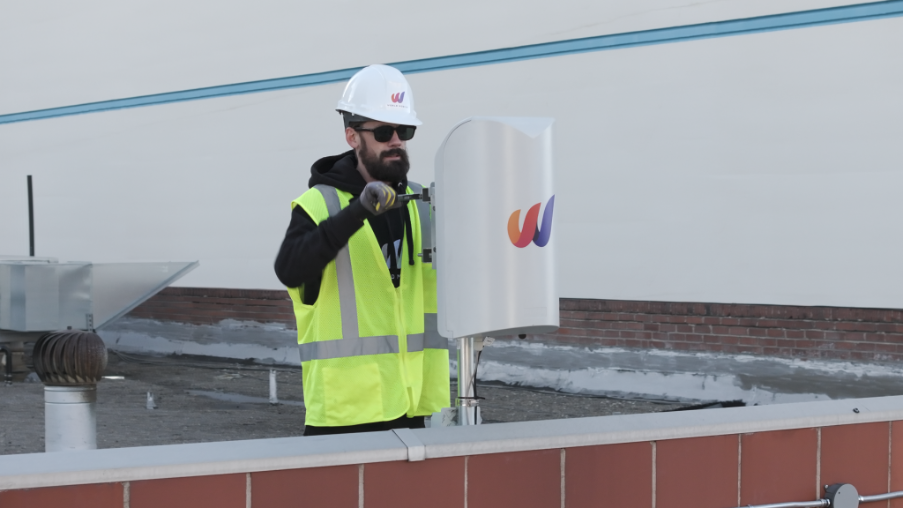Hurricane Helene’s devastation two months ago left a lasting mark on North Carolina. Over 230 people lost their lives, and damages exceeded $53 billion. The storm crippled traditional communication infrastructure, isolating thousands of residents from loved ones and emergency services. In response, World Mobile, a blockchain-driven telecom innovator, delivered a decentralized solution that redefined disaster recovery.
How Blockchain Delivered Lifesaving Connectivity After HurricaneHelene #CryptoDaily w/@WorldMobileTeam https://t.co/gK9v2w57xN
— Mario Nawfal (@MarioNawfal) December 10, 2024
At the heart of World Mobile’s response were its AirNodes, which are decentralized devices that provide localized cellular connectivity. These nodes were delivered into hard-to-reach disaster zones via a Black Hawk helicopter provided by Charles Hoskinson, the founder of Ethereum and Cardano. Each AirNode offers cellular coverage within a one-mile radius, enabling survivors to call emergency services, contact family members, and access critical resources.
What makes AirNodes revolutionary is their ability to be deployed anywhere with an internet connection, whether that be by fiber optics or satellite systems – also known as backhaul. In disaster-stricken areas like those affected by Hurricane Helene, where traditional backhaul was destroyed, satellite technology proved indispensable – in this case, World Mobile leveraged Starlink’s technology to convert satellite signals into cellular connectivity, ensuring rapid deployment in areas with damaged infrastructure.
CEO Micky Watkins highlighted the company’s mission during this crisis:
“We are committed to supporting communities when they need us the most. The rapid deployment of our DePIN network in the aftermath of Hurricane Helene demonstrates the vital role that innovative connectivity solutions can play in disaster recovery.”
The operation was documented in the film Connecting the Disconnected, premiered by Web3 thought leader Mario Nawful. The documentary captures the deployment of AirNodes during the disaster and highlights how DePIN technology is transforming more and more sectors each day. The efficiency and scalability of World Mobile’s approach offers a glimpse into the future of humanitarian aid.
Beyond this, World Mobile’s achievements extend beyond disaster response efforts. The company’s decentralized connectivity network recently reached over 500,000 daily users, a milestone that highlights its growing global impact. Additionally, World Mobile’s AirNode sales have become highly sought-after events, with the final of its drops selling out in under three minutes. Operators of AirNodes can earn up to $1,000 per month, making them both a powerful tool for social impact and a lucrative investment.
Today, the $1.7 trillion telecom industry faces increasing criticism for inefficiencies and exploitative practices. World Mobile’s blockchain-powered model offers a compelling alternative, emphasizing fairness, privacy, and community-driven ownership of communications infrastructure. By addressing both immediate needs and long-term challenges, World Mobile is paving the way for a decentralized telecom revolution.
